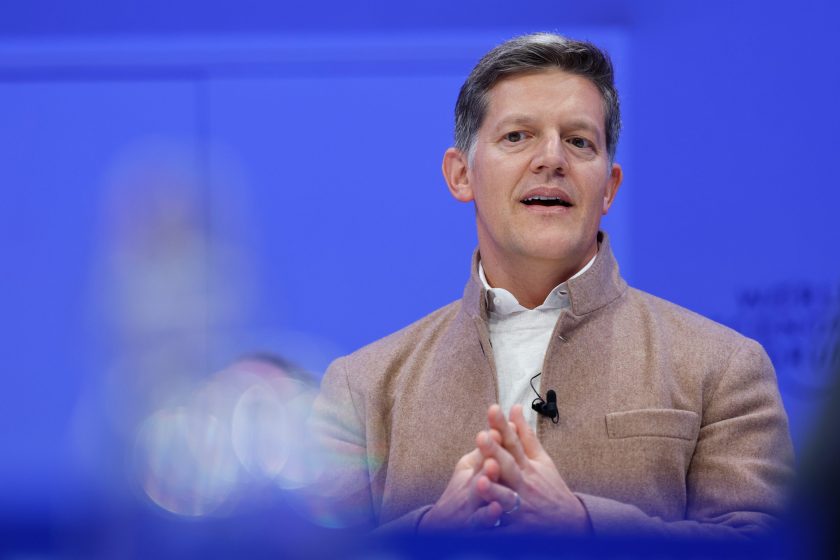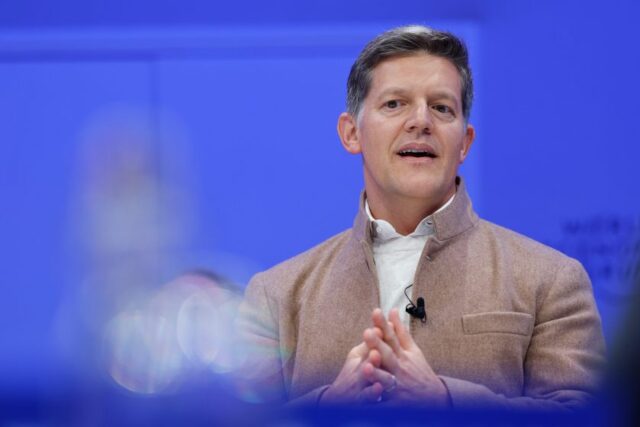
Sequoia Capital head Roelof Botha called his three early-career pay cuts “marshmallow tests.” Stefan Wermuth—Bloomberg/Getty Images
Sequoia Capital Managing Partner Roelof Botha had a decision to make after he finished his studies in actuarial science at the University of Cape Town: become an actuary or join McKinsey & Company, albeit with a 50% lower salary. He chose the latter, even though it wasn’t a guaranteed success.
“In the short run, that was a poor decision,” Botha told Fortune in an interview on the Leadership Next podcast. “But it opened up the door for me to be able to work and to study abroad.”
Botha called this decision a “marshmallow test,” a reference to the 1972 Stanford University experiment in which children from the university’s Bing Nursery School made the decision to either receive and eat one marshmallow immediately, or wait to eat and receive another marshmallow, a measure of delayed gratification and indicator of success in adulthood.
Botha’s McKinsey pay cut wasn’t the only time he held off on eating a marshmallow on his way to becoming “senior steward” of Sequoia Capital, which has invested in Apple, Google, Nvidia, and OpenAI, among others. After finishing his master’s studies at Stanford University, Botha turned down an offer to return to McKinsey & Company and opted to join PayPal, where, once again, he took a hefty pay cut.
Though Botha eventually joined PayPal in 2000 and became CFO a year later, cementing himself in the PayPal Mafia, he wasn’t always confident about his move there.
“There were moments where I regretted my decision as the burn rates of the company exploded, and fraudsters were trying to kill us, and it wasn’t obvious we’d build an independent business,” he said.
Ebay bought PayPal in 2002, and though CEO Meg Whitman offered Botha the opportunity to become CEO one day, he instead left for Sequoia in January 2003. The venture capital firm matched his salary, and offered no shares, equity, or carry.
“I had to take a chance on myself in this brand new career, and I took that chance and I’ve never looked back,” he said.
While Botha’s decisions were risky in the short-term, he credits the choices with his long-term success.
“Are you willing to delay gratification in exchange for something meaningfully better?” Botha said.
Levi Strauss CEO Michelle Gass is another proponent of this philosophy. The former Kohl’s CEO left the retailer in 2022 to join Levi Strauss, but Chip Bergh already held the CEO position for the denim juggernaut. With the tentative expectation that she would replace Bergh as CEO after 18 months at the company, Gass joined Levi Strauss as president, an initial demotion from her chief role at Kohl’s.
“It took a level of humility,” Gass told Fortune last month. “We had to check our egos at the door.”
Decision-making during ‘crucible moments’
By the time Botha took the helm of Sequoia as its senior steward in July 2022, the firm’s decision-making ethos mirrored Botha’s partiality to making tough calls.
In a May 2022 memo to its portfolio companies calling the economic times a “crucible moment,” Sequoia asked them to “pause and reassess” in order to navigate the market downturn.
Crucible moments describe any tricky crossroads for a company.
“How do we help them navigate these one or two very important decisions that they face every year that have a very meaningful bearing on the ultimate outcome of a company that isn’t always obvious?” Botha said.
Botha’s most recent crucible moment at Sequoia came last spring and summer, when the firm downsized, cutting one-third of its talent staff, chopping over half its crypto fund from $585 to $200 million, and separating its China and India units into separate entities — a sign that the economic downturn would have longer lasting market impacts.
Botha explained in a Feb. 6 episode of Fortune’s Leadership Next podcast that shrinking venture funding isn’t such a bad thing. The venture capital industry, which he said is overfunded, is returning to normalcy. Recent primate market valuation resets have meant companies have lost their unicorn status, but it also means that today, those companies are more realistically valued. Sequoia’s cuts have forced the firm to go back to basics in focusing on seed and early stage investments.
“From a Sequoia point of view, it’s actually been fantastic to go back to our roots, which is working with founders who are daring and helping them build their dream companies,” he said.




